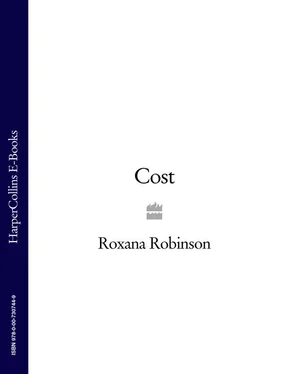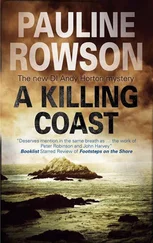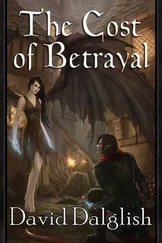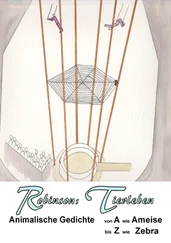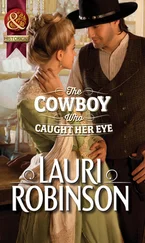Julia sliced a tomato, opening its juicy scarlet core, then lapping the slices in a neat circle on a plate. She opened the jar of mustard, for her mother and herself. Her father's sandwich would not have mustard or lettuce. The list of things her father did not like was legion: Edward viewed the world as a student project offered up to him for correction.
Edward's presence flooded through the house, powerful, demanding, judgmental. At any moment he might appear in the doorway, offering criticism, finding fault. The day before, while Julia was fixing dinner, Edward had arrived in the kitchen with a peremptory request for a flashlight to check beneath the sink in his bathroom.
“Water's dripping onto the floor,” he announced. “I want to see what's going on.”
“It's probably only condensation on the pipes,” said Julia, her heart sinking. “Not a leak.” Surely she'd know if there were a leak? Surely this wasn't a leak?
“I'd like to have a look at it,” he told her, as though she hadn't spoken. “Could I have a flashlight?”
He'd stood in the doorway, waiting, while Julia stopped chopping carrots to root through the kitchen drawer. She found a flashlight, but it was dead, and there seemed to be only one new battery—a mystery, since they came in pairs.
“Sorry,” she said, irritated at herself. Her father turned without a word and went back down the hall.
It was a fact that the house was shabby, and that many aspects of it were primitive or provisional. Julia and her ex-husband Wendell—both underpaid university professors—had always had less money than her parents, and now that she was single again, Julia had even less than be fore. Her father, who'd been a brilliant and successful neurosurgeon, had offered her no financial help during the divorce, believing that beds should be made and then lain in. He'd always seemed to take a stern relish in reminding her of her impecuniousness, pointing out the flaws in her house, her life, and the way she ran them. Now that she was poorer it seemed to Julia that he did this more often, as though being poor were merely an oversight on her part, and, if offered enough convincing evidence from him, she would change her mind and decide to be rich.
It was the constant threat of her father's appearance, his criticisms and demands, that made Julia feel harried. (“Rattled,” her mother would say. “Nettled.” She used those old-fashioned expressions. No one nowadays would know what a nettle felt like, the faint silvery irritation made by the leaves against your bare leg.)
She must relax, Julia told herself. Though why was he so rude about her house? And so casually rude, as though finding fault were his right. As though he had some special entitlement to criticism.
She drew another deep breath and laid out the slices of bread on the counter in rows, like bread solitaire. She spread the mayonnaise, smoothing it creamily out to the edges. The tangible world: she admired the rich surface of the mayonnaise. Opaque, succulent. How would you paint it, she wondered, and get both the glitter and opacity? Who used that heavy, creamy brushstroke? Chase? Sargent? It all looked like a painting already.
Her father was eighty-eight, her mother eighty-six. Julia loved them, and they were getting old. She didn't think of them as actually old, but as getting old. They were nearing that country, their bodies were less present in the world, they were losing height and weight and bulk. Her parents were being diminished. She could feel them moving away, withdrawing, sweeping out like the tide toward the distant horizon.
Her father appeared now in the doorway.
How is it , she thought, that when we see someone, all the disembodied thoughts and emotions of that-person coalesce in that figure, that presence? How does the body carry that dense weight of being?
Her father's body held him, his character within it. If the body was lost, all his thoughts and feelings, his opinions, his irascibility, his surgical skills would be lost, swept into deep space. He would be intact then only in memory—a system so flawed and arbitrary, so unreliable, so wanting. The thought made her panicky. She looked at her father and was struck by her deep knowledge of him, by the way their lives were wrapped around each other's, the many times she'd seen him walk into a room. How she'd longed, she supposed, for his approval.
Her father was now shockingly small, nearly her own height. In her childhood, when she'd first learned him, her father had been immense, massive-chested, towering over her like a cliff. His head was in the upper regions of the air; she'd had to call up to his great height, her own voice tossed and tiny. Even when she'd grown up, her father had been tall. At her wedding, walking down the long aisle of the church, her father remote and distant beside her, in his dark suit, she'd felt his looming, powerful presence.
But now her father's eyes were nearly level with hers, and his movements slow. Now his forehead rose to the top of his head, and fine white hair ringed his bare pate like a tonsure. His hair was too fine and weightless to lie down, and it stood up wildly, as though blown by a small personal wind. His nose had become bulbous; on his pouched yellowy cheeks were faint brown stains. His small piercing eyes were faded blue, and deep disapproving lines were etched from nose to mouth.
He wore old khaki pants, ponderous white running shoes, and a stained blue windbreaker, zipped up to his chin. He wore the jacket every day, indoors and out, as though it were the only thing he owned. This was not the way he'd used to dress. Julia remembered him leaving for the hospital each morning wearing elegant suits, dull silk ties, soft leather shoes. Now he looked like a poor person, homeless. Which was what age did to you, it stripped you of what you'd had, of your presence in the world. The sight of him like this, shuffling, heavy-footed, in his stained windbreaker, made Julia feel helpless with tenderness.
Her father frowned at her. “Do you have an atlas?” he demanded. “I want to look up where we are.”
At once Julia forgot her tenderness, her anxiety. He had restored himself to despot. His manner—autocratic, imperious—never ceased to exasperate her.
“We do have an atlas,” Julia said. “I'll get it for you.”
She strode into the living room, bare heels thudding confidently on the floor. Crouching by the bottom shelf, where the big books lay flat, she ran her fingers briskly and uselessly down the spines: the atlas, she could see at once, was gone.
She looked further, her gaze ranging back and forth across the shelves, lunch unfinished on the counter, her father standing ponderously behind her, judgment gathering in the silence. The atlas had its own place on the bottom shelf, everyone knew it. Why, right now, her father's frown embedding itself on his forehead, was the atlas elsewhere? More evidence of her inability to run a household. Where could it possibly be, that big ungainly volume?
Julia sat back on her heels. “It's not here, Daddy. Sorry.” She made her voice brisk and offhand.
“It's not there?”
“Someone's taken it and not put it back.” She stood and headed for the kitchen, head high.
“I wanted to see just where we are on the coast.” Her father shook his head. “You don't have an atlas.”
“I do have an atlas,” Julia corrected him. “Someone's taken it.”
There was a pause.
Edward said, “I don't see how you can say you have an atlas if you don't have it.”
“I do have an atlas,” Julia repeated. “I just can't find it right now.”
Edward shook his head. “I'd call that not having one,” he said, almost to himself. “Do you have a map of the region? A local map? I want to see where we are on the coast.”
Читать дальше
